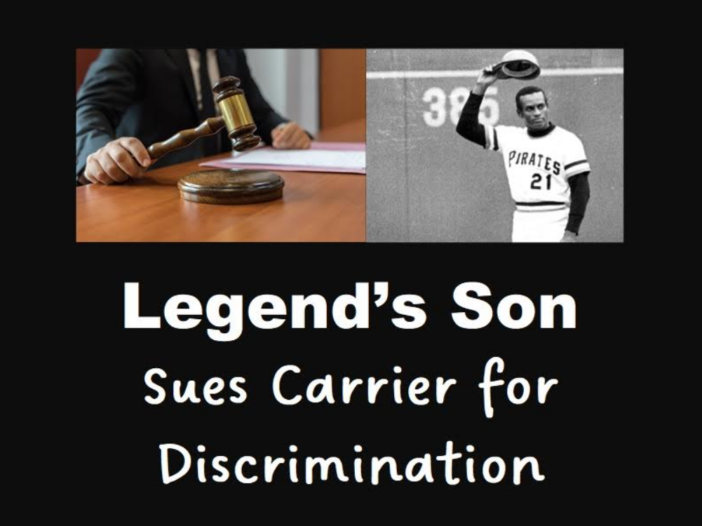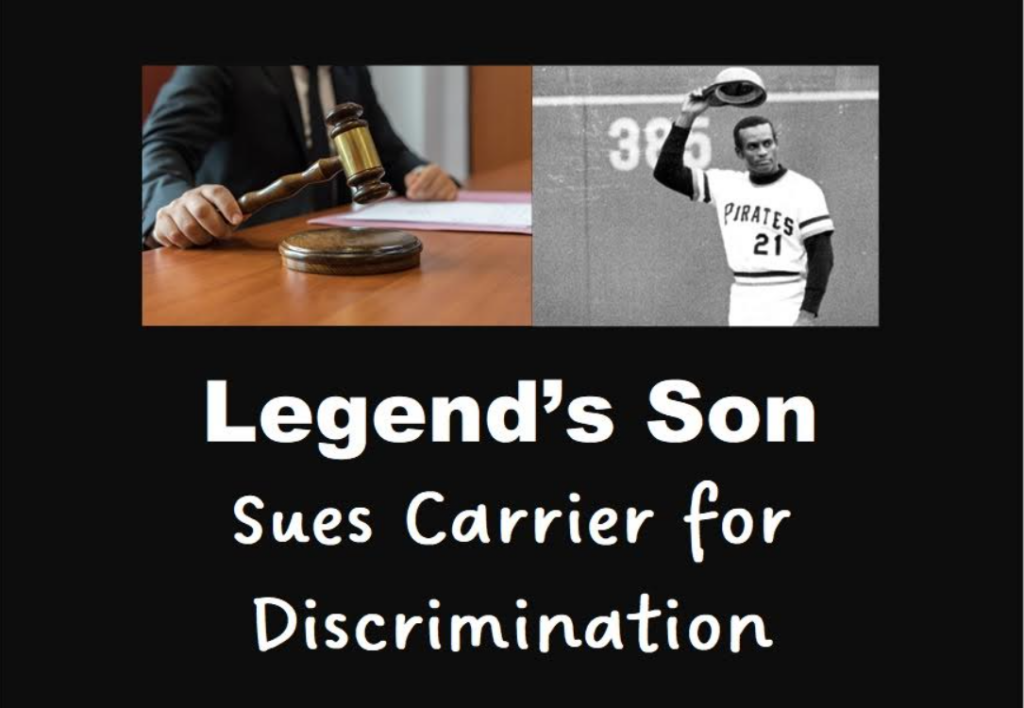
The son of a Major League Baseball legend became an agent for a captive agency carrier. In late 2022, a federal court ruled that he had a plausible case against that carrier for discrimination.
Roberto Clemente, Jr.’s namesake father was one of the greatest players in baseball history, amassing 3,000 hits and two World Series titles in an 18-year career with the Pittsburgh Pirates. After he died in a plane crash while on a humanitarian mission, he was enshrined in the National Baseball Hall of Fame. His son went on to become an insurance agent. It was a family affair; his wife, mother-in-law and brother-in-law were also licensed agents.

The mother-in-law, a successful agent for a captive carrier, started looking for a book of business to purchase so that she could start her own agency. In 2017, she found one that belonged to an agent of another captive carrier. After negotiations, she and the other agent signed a letter of intent for her to purchase the book, subject to approval from the selling agent’s carrier and that carrier’s acceptance of the new agency. The new agency was to be comprised of Mr. Clemente and his family members; it bore Mr. Clemente’s name, no doubt to capitalize on the good will toward the name in the Pittsburgh area.
There was trouble from the beginning. The agency later alleged that the carrier’s representative repeatedly changed the requirements for them to receive approval. Eventually, however, the carrier approved the sale and appointed the agency. The Clemente Agency began representing the carrier in June 2018.
The conflicts between carrier and agency continued. According to the agency, the carrier refused to update its agent listings or provide signage with the agency’s name. Other agents of the carrier supposedly felt that the agency’s name gave it an unfair competitive advantage in the Pittsburgh area. One was allegedly permitted to take a customer from the Clemente Agency by offering a lower price with the same carrier. In response, the carrier educated the agency on discounts that it could offer.
Things never got better, and in the summer of 2020 the carrier terminated the contract for alleged fraud. The claim was based on the agency allegedly offering a certain discount improperly. The agency claimed that they were misinformed about how the discount should be applied.
The contract gave the agency a qualified right to sell its book by a certain date. The agency alleged that the carrier interfered with this process and blocked a potential sale without good reason. Instead, some of its accounts were awarded to the agency that took one of its customers before.
The agency eventually filed a complaint with the federal government of alleged discrimination by the carrier. They followed that with a lawsuit in January 2022 against the carrier and the other agency, alleging multiple claims including discrimination, breach of contract, fraud, and conversion. The carrier and other agency asked the court to dismiss the claims.
In December 2022, the judge said yes and no. She dismissed the claims of fraud, conversion, and unjust enrichment. However, she left in place the charges against the carrier of discrimination, breach of contract, and interference with the sale of the book of business. She did dismiss all claims against the competing agency. Regarding the carrier, she found plausible evidence that it treated the Clemente Agency worse than it did their other local agents who were white. She cited the disparate actions taken against the Clemente Agency for the application of the discount (the other agency applied it the same way but was not terminated,) along with the objections to the use of the senior Clemente’s name in the agency name.
As the judge’s verdict was rendered only at the end of 2022, the litigation is ongoing.
No court has yet decisively concluded that the carrier acted with intent to discriminate, but the public evidence puts them in a poor light. It appears that this relationship may have been doomed from the start. The lesson for agents before they sign contracts with carriers is to listen to their gut feelings – if something feels like it’s not right, that may be a good sign that it isn’t.












